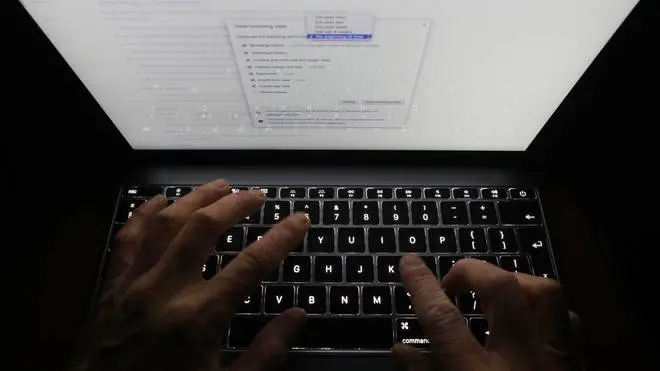
Nick Ferrari 7am - 10am
20 March 2020, 00:14

Coronavirus-related fraud has risen by 400 per cent within the space of a month, City of London Police has warned.
The force said there had been 105 reports to Action Fraud, the UK's national reporting centre for fraud and cybercrime, with total losses reaching nearly £970,000.
The majority of cases flagged to authorities related to online shopping scams where people ordered protective face masks, hand sanitiser and other products that were never delivered.
The first Covid-19 related scam report was made on February 9, with an additional 20 reports being received that month.
Between March 1-13, a further 46 reports were made to Action Fraud, while 38 reports arrived in the four days from March 14-18.
City of London Police said there had also been more than 200 reports of coronavirus-themed phishing emails.
These try to trick people into opening malicious attachments on emails that can allow fraudsters access to sensitive personal information, such as passwords, email logins and banking details.
Examples of fraudsters' tactics include an email from a supposed research group mimicking the US Centre for Disease Control and Prevention (CDC) and World Health Organisation (WHO).
The message claims to provide a list of local infections, but for victims to access it they must click of a credential-stealing link or make a payment to a e-currency Bitcoin account.
Another phishing email containing articles on the Covid-19 outbreak, includes a link to a fake company website where people are encouraged to sign up for a daily newsletter for more information.
Superintendent Sanjay Andersen, head of the National Fraud Intelligence Bureau, said: "The majority of scams we are seeing relate to the online sale of protective items, and items that are in short supply across the country, due to the Covid-19 outbreak.
"We're advising people not to panic and to think about the purchase they are making.
"When you're online shopping it's important to do your research and look at reviews of the site you are buying from."
Graeme Biggar, director general of the National Economic Crime Centre, said: "We have already seen fraudsters using the Covid-19 pandemic to scam people looking to buy medical supplies online, sending emails offering fake medical support and targeting people who may be vulnerable or increasingly isolated at home.
"These frauds try to lure you in with offers that look too good to be true, such as high return investments and 'healthcare opportunities', or appeals for you to support those who are ill or bogus charities.
"The advice is simple, think very carefully before you hand over your money, and don't give out your personal details unless you are sure who you are dealing with."